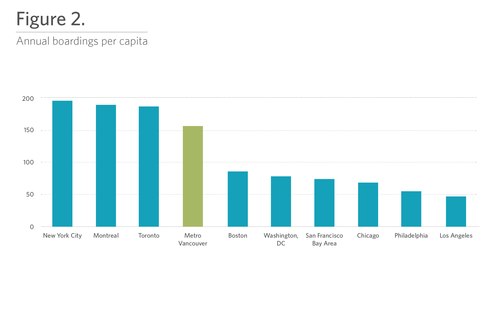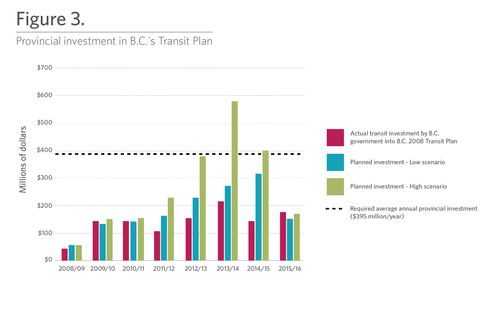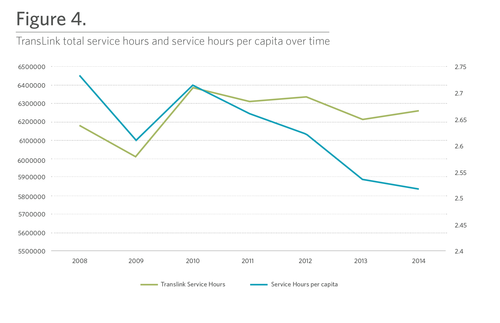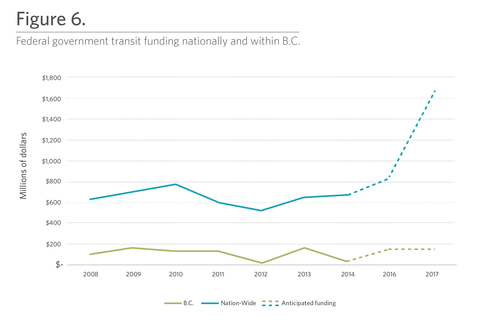David Suzuki's Blog, page 34
June 9, 2016
Stand with Grassy Narrows to clean up their toxic legacy

Hey! Want more DSF? Join David Suzuki on Facebook

Statement by Environmental Defence, David Suzuki Foundation and Ontario Nature on the amended Rouge National Urban Park Act tabled today in Ottawa
TORONTO, ON - We congratulate the federal government for tabling the amended Rouge National Urban Park Act that will ensure stronger ecological protection for the park's sensitive landscape and wildlife. The amended Rouge National Urban Park Act includes changes that enshrine the importance of managing the park to maintain its ecological integrity, which was absent from the original Act. This change and the increase in park land area, including the addition of Ontario's provincial land holdings will make the park a treasure all Canadians can enjoy. The federal government is also following through on the financial commitments for management promised by the former federal government.
This is a significant day for Ontario's Rouge watershed. The Act marks an important action to protect and invest in one of the province's most pristine remaining Carolinian forest ecosystems. We also look forward to working with the federal government over the coming year to improve and enlarge Canada's first urban national park. There is important work to be done to strengthen the management plan, encourage the cancellation of the unnecessary Pickering airport proposal and create a 30,000 acre Rouge National Urban Park by including all remaining 9,600 acres of federal lands within the park's boundary.
About ENVIRONMENTAL DEFENCE (environmentaldefence.ca): Environmental Defence is Canada's most effective environmental action organization. We challenge, and inspire change in government, business and people to ensure a greener, healthier and prosperous life for all.
About DAVID SUZUKI FOUNDATION (davidsuzuki.org): The David Suzuki Foundation is a Canadian non-profit environmental organization dedicated to finding solutions through science-based research, public engagement and policy work.
About ONTARIO NATURE (ontarionature.org): Ontario Nature protects wild species and wild spaces through conservation, education and public engagement. Ontario Nature is a charitable organization representing more
than 30,000 members and supporters and 150 member groups across the province.
30
For media requests, please contact: Allen Braude, Environmental Defence, 416-356-2587 (cell); 416-323-9521 ext. 247; abraude@environmentaldefence.ca
Hey! Want more DSF? Join David Suzuki on Facebook

Toronto's laneways are going green this summer
TORONTO, JUNE 9, 2016 -- Toronto's more than 250 kilometres of laneways will soon be getting greener as a result of two innovative, citizen-led projects that are bringing nature home to these often-neglected urban spaces.
"Toronto's vast network of residential and commercial laneways represent a landscape of immense potential for greening projects," said Jode Roberts, who runs the Homegrown National Park Project and Got Milkweed campaign for the David Suzuki Foundation. "By adding natural elements and permeable surfaces to lanes, we can make them cooler during the summer while reducing flooding and making them more welcoming for local residents and critters like bumblebees and butterflies."
The Laneway Puncture Project is a pilot project based on a design presented by landscape architect Victoria Taylor (VTLA) and landscaper Jonas Spring (Ecoman) as part of the David Suzuki Foundation's 2014 Homegrown Design Challenge. The project is a collaboration with local councillor Mike Layton, David Suzuki Foundation, VTLA, Ecoman, The Laneway Project and the City of Toronto's Beautiful Streets division, with support from Live Green Toronto. Preliminary construction work was completed earlier this month in Willowvale Lane, near Christie Pits Park, and a laneway adjacent to Fred Hamilton Park. A seed-scattering party will be held on Sunday, from 10 a.m. to noon, in Fred Hamilton Park.
"The aim of the Laneway Puncture Project is to improve the environmental performance of laneways, by making a strategic puncture along the centre drainage channel with an open grid of paving stones, which allow water to be absorbed during storms and provide a little green flourish," said Michelle Senayah, director of The Laneway Project. "The pilot project will allow us to experiment with a mix of plants that are adapted to harsh, compacted soil conditions."
"The Laneway Puncture is a metaphor for change," said Victoria Taylor. "This Sunday we will plant seeds and celebrate the potential of innovative, green infrastructure; transforming under-functioning spaces into places of social and ecological possibility."
The second laneway greening pilot project is the Croft Street Greening Project, led by the Harbord Village Residents Association in partnership with the David Suzuki Foundation, The Laneway Project and councillor Joe Cressy, with support from TD Friends of the Environment. HVRA volunteers have taken a DIY approach, building dozens of planters out of reused materials, including cinder blocks and plastic barrels. The planters were installed along Croft Lane by a team of volunteers and residents last weekend as part of 100-in1 Day.
To support these sorts of laneway-greening projects across the city, The Laneway Project published a guide this spring that gives residents information about how to begin transforming laneways in their neighbourhoods. Download a copy of the Laneway Greening Guide.
For further information, please contact:
Jode Roberts, David Suzuki Foundation, 647-456-9752, jroberts@davidsuzuki.org@joderoberts
Hey! Want more DSF? Join David Suzuki on Facebook

June 8, 2016
SeaChoice celebrates 10 years with Canada's first comprehensive sustainable seafood study
VANCOUVER/HALIFAX -- On World Oceans Day, a new report released from SeaChoice finds that Canada should do more to protect oceans and the food they provide. The organization, which is celebrating its 10-year anniversary, released today the first major assessment of the sustainability of all of Canada's seafood imports and exports. The report, Taking Stock: Sustainable Seafood in Canadian Markets, is part of SeaChoice's work to promote and highlight sustainable seafood choices in Canadian grocery stores.
"While we are celebrating the growing support for sustainable seafood among Canadians, along with increased fisheries assessments, the report's findings show there are still obstacles to supporting healthy oceans," said Karen Wristen from the Living Oceans Society.
The report found:
Weak government labelling and traceability requirements have made Canadian seafood assessments impossible for many species.
Tropical farmed shrimp, farmed open net-pen salmon and skipjack tuna caught with harmful gear were the top three "red-listed" or "avoid" fish imported into Canada (by volume).
Open net-pen Atlantic salmon is Canada's most exported red-listed fish.
Only 16 per cent of the seafood in Canada is considered "Best Choice" by SeaChoice.
Many groups have contributed to sustainable seafood gains, namely the Conservation Alliance for Seafood Solutions and its 30 collaborators and members, which include the Marine Stewardship Council, Monterey Bay Aquarium's Seafood Watch, Ocean Wise and SeaChoice.
"Increasing the profile of sustainable seafood would not have been possible without the efforts of collaborators, members, major retailers, suppliers, seafood consumers, chefs and fishing and aquaculture industries," said Bill Wareham, Western Canada science manager at the David Suzuki Foundation, a SeaChoice member.
SeaChoice was created in 2006 to help Canadian businesses and seafood lovers support sustainable fisheries and aquaculture throughout the supply chain. Huge strides have been made over the past decade.
"Last year, SeaChoice partner Buy-Low Foods was the first major retailer in North America to replace all unsustainable red-listed seafood with sustainable alternatives," said Wareham.
SeaChoice has also contributed to fisheries and aquaculture reforms. In 2011, members worked to improve the Canadian groundfish trawl fishery, which has spurred trawl improvements around the world. SeaChoice also supported innovative aquaculture solutions such as the closed-containment, land-based Kuterra salmon, sold exclusively through SeaChoice partner Canada Safeway.
"While oceans continue to face numerous threats globally, the sustainable seafood community is doing its part to make them healthier," Susanna Fuller, SeaChoice Member from the Ecology Action Centre said. "One of the best ways to protect oceans is to support seafood that is caught in environmentally and socially responsible ways. If we continue to expand sustainable seafood's share of the market, people can enjoy seafood while leaving a smaller footprint on the planet for generations to come."
SeaChoice
SeaChoice, Canada's most comprehensive sustainable seafood program, focuses on solutions for healthy oceans. SeaChoice is operated by the David Suzuki Foundation, Ecology Action Centre and Living Oceans Society. Launched in 2006, SeaChoice was created to help Canadian businesses and shoppers take an active role in supporting sustainable fisheries and aquaculture at all levels of the seafood supply chain. SeaChoice has created easy-to-use, science-based tools that help consumers make the best seafood choices. For more information, visit www.SeaChoice.org.
For more information, contact:
Lana Brandt, SeaChoice, 778-833-2954
Bill Wareham, Western Canada Science Manager, David Suzuki Foundation, 604-928-1150
Karen Wristen, Executive Director, Living Oceans Society, 604-788-5634
Susanna D. Fuller, Senior Marine Conservation Coordinator, Ecology Action Centre, 902-483-5033
Background facts from Taking Stock: Sustainable Seafood in Canadian Markets
A lack of government-required labelling and tracking for exported and imported seafood makes assessing the sustainability of many seafood products impossible.
Over 30 per cent (by volume) of seafood imported into Canada is reported with insufficient specificity to allow for sustainability rankings.
Sixteen per cent of all seafood (by volume) produced in Canada is ranked green (Best Choice), 61 per cent is ranked yellow (Some Concerns), 14 per cent is red (Avoid) and nine per cent is unranked.
Canada assesses 48 per cent of its fish stocks to be "healthy", a significantly different finding from this analysis.
Red-ranked seafood produced by volume in Canada is primarily farmed open-net pen salmon (72 per cent), with the remaining 28 per cent from fisheries including Atlantic cod; Atlantic hake; Manitoba freshwater pickerel, whitefish and perch; Atlantic Pollock; Atlantic swordfish; tuna and Atlantic cusk.
Canada has a trade surplus when it comes to sustainable seafood. We export more sustainable seafood than we import.
Only 11 per cent of seafood available in Canada is listed as green.
Imported red-ranked seafood includes farmed shrimp, farmed salmon and skipjack tuna.
SeaChoice retailer partner sales data indicate that 23 per cent of seafood is from green sources, 66 per cent from yellow and nine per cent from red ranked sources. This shows that SeaChoice retail partners source a higher percentage of green ranked seafood than is available, on average, across Canada.
Approximately 80 per cent (by value) and 67 per cent (by volume) of Canadian wild-caught fisheries are certified by the Marine Stewardship Council (MSC) and have conditions in place to improve sustainability.
Aquaculture Stewardship Council (ASC) certifications are growing on the Pacific and Atlantic coasts, with five farms certified and seven within the certification process as of April 2016.
Report Recommendations
1. To improve seafood sustainability tracking in Canada and the effectiveness of market-based approaches:
Canada should require government agencies to improve seafood labelling and reporting of fisheries and aquaculture products by requiring species level identifications.
ENGOs assisting with sustainable seafood procurements should adopt a shared data gathering tool to track program effectiveness.
2. To eliminate red-ranked seafood and increase availability of green-ranked seafood as well as address human rights abuses in seafood production:
Canadian retailers, food-service companies and restaurants should continue to avoid buying red-ranked seafood.
Canada should support traceability requirements as a part of sustainability assessments and examine human rights abuses in the seafood supply chain.
Focus should be on improving practices or restricting imports from red-ranked fisheries within and outside of Canada.
3. To ensure that eco-certification programs are credible, aligned with Canadian law and policy and result in improved fisheries sustainability, including impacts on target species and impacts of fishing on the ecosystem, we recommend:
Canadian fisheries certified by the MSC meet conditions within a reasonable timeframe, with MSC conditions that are consistent with Canadian laws and policies relating to sustainable fisheries and marine biodiversity protection, and with a particular focus on species assessed by COSEWIC and considered at risk.
ASC certifications, particularly with reference to the Salmon Standard, should not undermine wild salmon management and must uphold a high standard for disease and pathogen control.
Hey! Want more DSF? Join David Suzuki on Facebook

David Suzuki Foundation input on Ontario's Long-Term Energy Plan
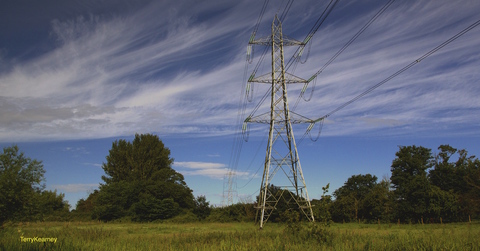
(Credit: Terry Kearney via Flickr)
As part of our ongoing efforts to work for positive climate action, the David Suzuki Foundation regularly provides input into government policies. The following was submitted to Ontario's Minister of Energy, Bob Chiarelli, on June 8, 2016:
The Honourable Bob Chiarelli
Minister of Energy
Office of the Minister, 4th Floor Hearst Block, 900 Bay St.
Toronto, ON M7A 2E1
June 8, 2016
RE: Initial thoughts on scope of the next Long-Term Energy Plan
Dear Minister Chiarelli,
Thank you for your letter of May 19 inviting the David Suzuki Foundation to offer initial thoughts on the scope of the next Long-Term Energy Plan (LTEP).
We believe the Plan's scope should be wide and ambitious, covering a range of issues including:
Nuclear power: We would like to see the Plan mandate closure of the Pickering facility by 2020. We have a number of concerns about nuclear energy, including cost, waste disposition, links to cancer and potential impacts on wildlife. A recent article in American Scientist, "Energy-Water Nexus: Head-On Collision or Near Miss?" says fish kills "have been linked on multiple occasions to high water temperatures associated with nuclear power generation."
There are also issues with uranium processing that suggest nuclear is not a solution to climate change. Writing in Scientific American, Mark Jacobson and Mark Delucchi argue, "Nuclear power results in up to 25 times more carbon emissions than wind energy, when reactor construction and uranium refining and transport are considered."
Renewable energy: The dangers of climate change make expansion of renewable power a necessity. But the 2013 LTEP foresees no growth in solar and wind power after 2021. We urge the government to use the next LTEP to mandate a major expansion of renewables in the post-2021 period. One key strategy to achieve this would be retention of the FIT program for community-run projects -- especially those owned by solar co-ops.
Renewables' growth is predicated on reduced reliance on natural gas-fired generation. But with 75 per cent of natural-gas stations' contracts set to expire by 2018, the possibility of phasing out this fossil fuel is now within reach. As a recent Environmental Defence report explains, "Renewables and energy storage can take the place of gas, and our Long-Term Energy Plan can lead to fewer emissions and more support for Ontario-based clean technology."
Expanding renewables can also lead to significant job growth. As Environmental Defence makes clear, "continuing to develop increasingly low cost wind and solar energy post 2021 would not only keep the valuable supply chain the province has developed intact, it would also sustain the thousands of jobs in Ontario's renewable energy industry." It is worth remembering that from 2008 to 2014, Ontario's solar and wind sectors saw the creation of some 180,000 direct and indirect jobs.
Ontario-Quebec electricity trade: We urge the Ministry to consider purchasing more hydroelectric power from Quebec. This power could be used in at least two ways: a) to balance Ontario's variable wind and solar generation and b) to replace baseload power currently supplied by our nuclear fleet. The economics of such an undertaking, especially with respect to nuclear, look very favourable. While Pickering's fuel and operating costs are about 8.16 cents per kWh and the cost of power from a re-built Darlington would be at least 8.9 cents per kWh, Quebec water power can be purchased in a long-term contract for just six cents per kWh. Buying electricity from our eastern neighbour would not only spare us the cost and danger of managing radioactive waste, it would also save us money.
Use of natural gas for heating: We are pleased to see that Ontario's climate plan mandates net-zero emissions from new homes starting in 2030. Clearly this will entail major expansion of geothermal and electric heating systems and, over time, a significant reduction in natural-gas-fired furnaces. We urge the Ministry to extend this mandate even further and pursue a full phase-out of natural gas as a heating source. Doing so will protect Ontarians from the volatility of fossil-fuel markets and demonstrate the government's acceptance of the best climate science -- which says most fossil fuels need to remain buried.
Promotion of electric vehicles: We are pleased to see the climate plan has significant support for electric vehicles, including cash incentives to purchase EVs and install charging stations and a requirement that charging stations be built in all new commercial office buildings. We are encouraged by the initial goal of five per cent of cars sold being EVs by 2020 but believe this number should rapidly increase, and it should not simply be a target; it should be mandated.
Energy efficiency: While much of the energy discussion in Ontario is about generation, it is crucial as well to focus on efficiency. We would like to see this reflected in the new LTEP. Efficiency reduces emissions but it also saves consumers money. The Ontario Power Authority estimates the cost of efficiency -- i.e., of avoiding electricity use -- at 3.5 cents per kWh. That compares favorably to the 8.9 cents per kWh projected for power from the re-built Darlington facility. The province should invest more dollars in conservation and fewer in high-priced nuclear.
Summary: In sum, we would like to see the next LTEP take bold measures to transform energy in Ontario. We favour a system that is far less tied to nuclear; phases out natural gas for heating and power; and is far more reliant on renewables -- especially those developed by local communities. We also support initiatives to significantly expand energy storage and efficiency.
Thank you for considering the content of this letter. Please contact us should you require elaboration.
Yours,
Gideon Forman
Climate Change Policy Analyst
The David Suzuki Foundation
Hey! Want more DSF? Join David Suzuki on Facebook

Ontario's Climate Action Plan reinvests cap-and-trade money to build a cleaner future
TORONTO -- The David Suzuki Foundation is encouraged by the release of Ontario's Climate Change Action Plan, which demonstrates the province's commitment to building a low-carbon future. The plan will be funded by the province's cap-and-trade revenue and contains a number of positive investments and solutions including:
Rebates on purchases of non-polluting electric vehicles (up to $14,000) and home-charging stations ($1,000).
A proposal to eliminate sales tax on EVs (a 13 per cent saving).
Free overnight EV charging (in houses and condos) for four years.
All new commercial office buildings will need to have EV charging stations.
A target of five per cent of car sales being EVs by 2020.
Between $150 million and $225 million over five years for cycling infrastructure.
Hundreds of millions of dollars for "Regional Express Rail", an electrified commuter service in the Greater Toronto Area.
"This plan is a huge step forward for the province and for Canadian climate action in general," said David Suzuki Foundation policy analyst Gideon Forman. "While there is still more to do, the comprehensive approach to cutting carbon emissions evident in this plan sets a strong example for other provinces."
Perhaps most exciting is the province's requirement that all new homes from 2030 onward have net-zero emissions. That means they could use natural gas for heating but would offset those emissions, perhaps with solar panels or through offsets purchasing. The province will also provide about $500 million for home retrofits to reduce natural gas heating.
"Even as Canada continues to work on a much-needed national approach to climate leadership, provinces are stepping up," said Foundation science and policy director Ian Bruce. "Reinvesting money generated from the province's new cap-and-trade system to give Ontarians financial incentives to make their homes and commutes more energy efficient effectively doubles the emissions-reducing impact of those dollars."
Media Contacts:
David Suzuki Foundation - Gideon Forman 647-703-5957
David Suzuki Foundation - Steve Kux 604-374-4102
Hey! Want more DSF? Join David Suzuki on Facebook

David Suzuki Foundation report links coastal experiences with environmental rights
VANCOUVER -- Coastal British Columbians see environmental rights as essential to human rights, according to a report from the David Suzuki Foundation, released this morning to mark World Oceans Day. Coastal residents' concerns and hopes for their communities and ocean environments are central to the report, Charting coastal currents, which makes a compelling case for considering environmental rights as a foundation for human rights.
"When we think of human rights, we think of equality, freedom, democracy. But what good are any of those if we don't have clean air, soil and water? It has to start with nature," said one respondent who participated in a coastal tour the Foundation held last year that collected more than 1,500 comments from a dozen communities in the traditional territories of 12 First Nations. Residents described the Pacific coast as the architecture, food store, economic lifeblood and essence of the people who live along its shores, providing the air they breathe and the food they eat.
"Climate change, ocean acidification, pollution and industrial pressures -- combined with economic and social challenges in coastal communities -- make this a critical moment for coastal residents," said David Suzuki Foundation Western Canada director Jay Ritchlin. "This report tells decision-makers they must do a better job of responding to and protecting B.C.'s coastal communities."
Report comments focus on observations about climate change impacts on oceans and wildlife, loss of traditional ways of living and proliferation of industrial projects with potentially catastrophic impacts receiving government approval with little or no community consultation. They also reveal a sense of hope, pride and the need to take action to encourage sustainable practices in fishing and renewable energy production.
"We're taking these poignant observations with us to provincial, national and international audiences to let them know what people from this region are experiencing, with the hope that governments will act on their concerns," Ritchlin said.
Earlier this year, the Foundation delivered a submission to the United Nations Committee on Economic, Social and Cultural rights -- a body that monitors Canada's compliance with international human rights obligations -- as part of Canada's first periodic review in 10 years. The Committee's recommendations mirrored the concerns of coastal residents and validated their observations that their human rights have been violated.
The next step is for the Government of Canada, the Province of British Columbia and other levels of government to enact policies that protect a healthy environment. Report recommendations address marine planning and climate change, implementing the Truth and Reconciliation Commission's recommendations and re-instating legal environmental protections.
Media contacts:
Jay Ritchlin, Director for Western Canada, David Suzuki Foundation
Email: jritchlin@davidsuzuki.org
Phone: 604-961-6840
Theresa Beer, Senior Communications Specialist, David Suzuki Foundation
Email: tbeer@davidsuzuki.org
Phone: 778-874-3396
Hey! Want more DSF? Join David Suzuki on Facebook

June 7, 2016
Charting Coastal Currents
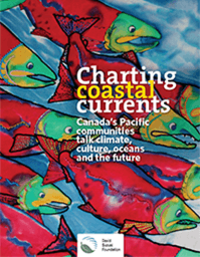
Charting coastal currents highlights the concerns and hopes of coastal British Columbians, gathered during a 2015 tour of a dozen communities in the traditional territories of 12 First Nations. The report features the words of coastal residents to make a compelling case for considering environmental rights as a foundation for human rights. It calls on all levels of government to enact policies that protect a healthy environment and offers recommendations concerning marine planning and climate change, implementing the Truth and Reconciliation Commission's recommendations and re-instating legal environmental protections in Canadian laws.
Hey! Want more DSF? Join David Suzuki on Facebook

June 6, 2016
Breaking gridlock - BC's transit investment deficit and what can be done to fix it

Investment in public transit in Metro Vancouver has stagnated over the and drivers and transit riders are both feeling the pinch. Congestion costs the region more than $1 billion per year and with the population expected to grow by an additional one million people by 2040, the problem will only get worse unless something is done. This research reveals that if the B.C. government were willing to commit to the same funding share that it proposed for the 2008 Provincial Transit Plan, the region would already be on its way.
Hey! Want more DSF? Join David Suzuki on Facebook

Report shines light on B.C. government's history of transit underfunding
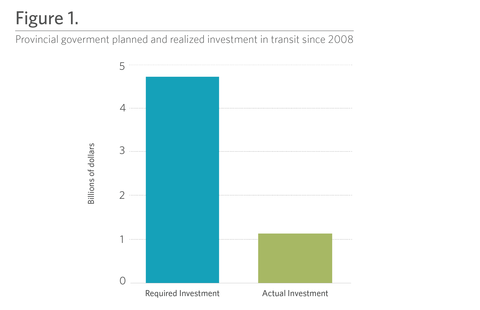
VANCOUVER -- As billions of dollars in federal investments for transit infrastructure sit on the bargaining table, a new report by the David Suzuki Foundation sheds light on the B.C. government's pattern of underfunding for transit projects. Analysis of budget documents reveals that the province has fallen far short of the investments it committed to with the launch of the 2008 Provincial Transit Plan, and this trend has continued in current talks between the B.C. government and Metro Vancouver mayors.
Download the full report here.
"This report suggests that systematic underfunding of transit by the provincial government has contributed to the congestion that people face every day in densely populated areas like Metro Vancouver," said David Suzuki Foundation CEO Peter Robinson. "While other transportation projects like roads and bridges are going ahead without delay, transit infrastructure has been put on an uneven playing field as the province continues to provide insufficient financial support."
On May 26, the B.C. government announced one-third funding support for the transit plan developed by Metro Vancouver's mayors -- much less than what it suggested was its fair share for the 2008 plan. Mayors and stakeholders have criticized the new commitment for failing to address a crucial funding gap while jeopardizing the region's share of new federal funds for up to half the cost of transit projects. The mayors have argued that the province must also deploy new revenue tools to raise an additional seven per cent. This would bring the provincial funding share to 40 per cent.
"Local governments are limited in what they can do to fund these kinds of projects," said David Suzuki Foundation science and policy director Ian Bruce. "The provincial government needs to work with the region's mayors beyond what they've agreed to so far if we're to have a hope of securing matching federal funds for these projects."
The new report suggests that if the B.C. government committed the same level of funding it proposed in 2008, but supported it with a detailed fiscal plan, the province would have already secured recently committed federal infrastructure funds. In fact, the provincial investment needed today is less than what the province itself suggested was its fair share under the previous plan (40 per cent versus 43 per cent).
"This report underscores the fact that these new federal funds represent a crucial opportunity to turn the tide on vital transit investment in B.C.," Bruce added. "But the window of opportunity will close soon and the B.C. government needs to make sure its fastest-growing region doesn't lose out."
Metro Vancouver is expected to add one million new residents by 2040, and roads and transit networks are already near capacity. Costs related to traffic congestion in Metro Vancouver are estimated to be as high as $1.3 billion per year.
Media Contacts:
David Suzuki Foundation - Steve Kux: 604-374-4102
David Suzuki Foundation - Theresa Beer: 778-874-3396
Hey! Want more DSF? Join David Suzuki on Facebook

David Suzuki's Blog
- David Suzuki's profile
- 247 followers


